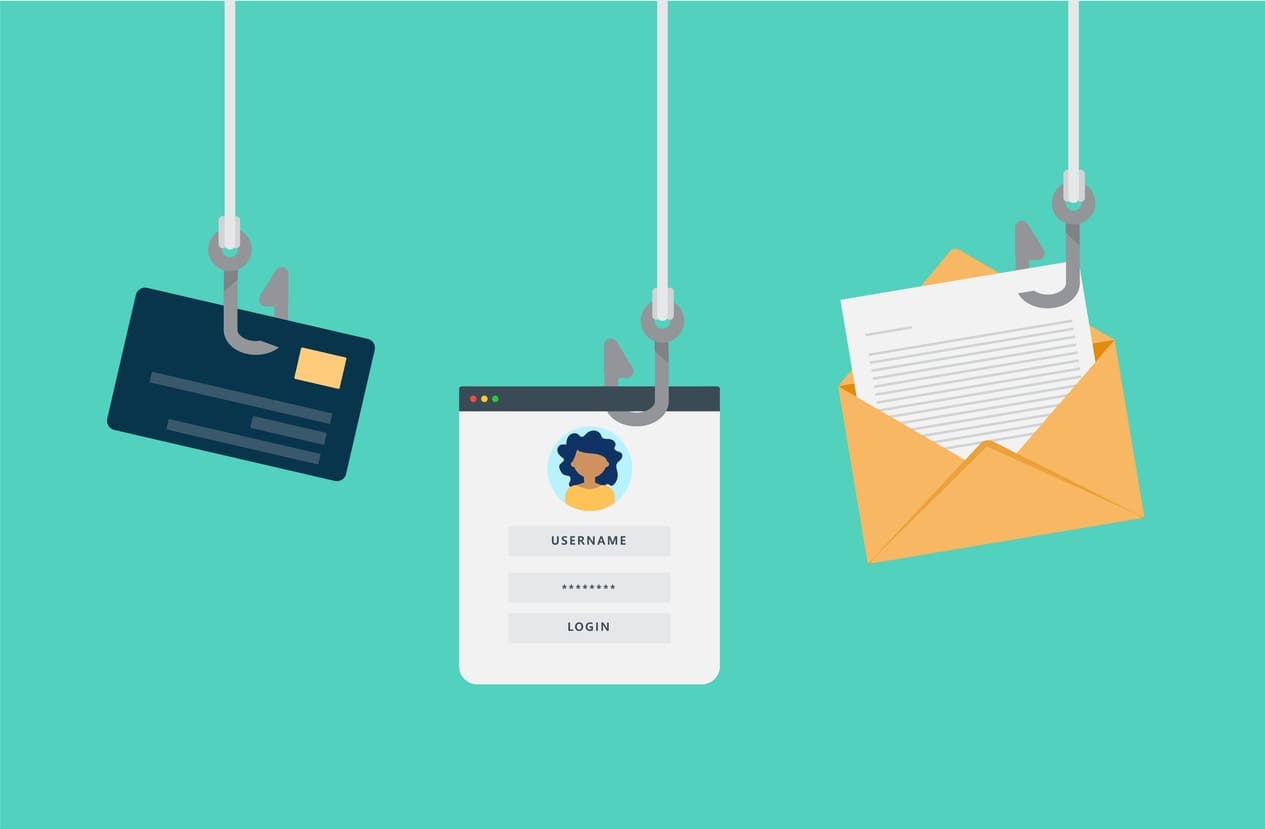Internet scammers are getting smarter and more creative every day to get their hands on your money and personal information. There are a lot of things happening in the world that have created a so-called “perfect storm” for internet scams. One of which is the world’s undeniable shift to handling day-to-day tasks digitally. Think about the last 20 years, what are some things you can easily handle online now that you used to have to manage in person?
You can do your banking online, meet with your financial professional over a zoom meeting, and pay your bills from your phone all within the comfort of your own home. While this kind of digital access is convenient, it also creates opportunities for online scams and internet fraud.
The Federal Trade Commission (FTC) reported that Americans lost $5.8 billion to fraud in 2021, and this number has been trending upward over recent years. Part of this upward trend is due to the growth and evolution of online scamming. Here’s a look at some of the more common internet scams and what you can do to help yourself avoid becoming a victim of one.
Phishing Scams
Imagine this: you receive an innocuous email from an entity you’re familiar with. It could be a local store you frequent, maybe even a local bank or your old alma mater. Nothing looks out of the ordinary, so you open it, click the link, and it takes you to a separate site that asks you to “verify” your personal information. Thinking there is a good reason the trusted (or so you think) sender is asking for this; you enter your email, username, and password. That’s how easy it is to fall victim to a Phishing scam.
Phishing scams are one of the most common internet scams and their main goal is to steal your confidential information and expose your computer to attack by scammers. It’s important to avoid clicking links that you can’t independently confirm the safety of. Also, make sure to check the email address to see if it looks legitimate or not. If the email address looks fishy, chances are the email isn’t authentic. You can always contact the company who sent you the message to verify if they sent it or if it’s a Phishing attempt. Keep a healthy level of skepticism about links being sent to you, and don’t click on anything that might seem out of the ordinary.
Tech Support Scams
Tech support scams are also one of the most common internet scams and different versions of this have been floating around and evolving for years. It usually starts with someone contacting you, pretending they’re from a computer company, and letting you know that your computer is “infected.” They’ll have you download a program that lets them take control of your computer and will then tell you it will cost money to fix the problem at hand. Asking for money for services you don’t need, to fix a problem that doesn’t exist.
This scam usually targets older adults who might not be very tech-savvy. These scammers have been, unfortunately, highly successful in the past. In 2021, according to the FBI, over 23,000 people reported losing more than $347 million due to tech support scams. This is a 137% increase in losses from the previous year. Most victims (almost 60%) were reported to be over 60 years old and experienced 68% of the losses. Remember that legitimate and reputable companies will never randomly contact you of the blue to let you know that your computer is infected, and make sure to ignore any website pop-ups or webpages saying something similar.
Lottery or Financial Windfall Scams
Congratulations! You just got an email informing you that you’ve won the lottery or (some other large financial windfall) unexpectedly. Lucky you. All you need to do is click this link, pay this one-time fee or send us your banking information, and the money will be sent right over. This is one of the oldest internet scams in the book, but it’s still incredibly common and has evolved several times over the years.
This could be guised as multiple things: receiving an inheritance from an unknown relative you’ve never met, an email from overseas royalty wanting to wire you money, winning an international sweepstakes you didn’t enter, etc. The approaches are different, but the result is the same. There is no financial windfall, and any personal information or money sent is likely going straight into the hands of scammers with unscrupulous intentions. Never send money or private information to someone promising a considerable sum of money in return. If something seems too good to be true, it probably is.
What to Remember
It’s usually safe to assume that if someone online is asking you for money or personal information unexpectedly, chances are you’re being scammed. Avoid clicking random links and don’t give out information or wire money to anyone on the internet who contacts you directly. If you’re conducting a financial transaction online, make sure it’s done through a trusted and reputable website.
If you believe you’ve fallen victim to a scam, you should immediately:
- Change your online passwords
- Call your bank or credit card company
- Delete any software you might have downloaded
- Contact your local authorities
These scams are evolving and getting harder to catch every day, so make sure to remain vigilant. It’s better to be skeptical than to be scammed.







